ALzheimer’s Fall prevention
Learning everything you can about Alzheimer’s fall prevention is the first step to keeping your family member with Alzheimer’s Disease safe.
According to the CDC;
- One out of five falls causes a severe injury, such as broken bones or a head injury,
- Each year, 3 million older people are treated in emergency departments for fall injuries.
- Over 800,000 patients are hospitalized yearly because of a fall injury, most often due to a head injury or hip fracture.
- Each year at least 300,000 older people are hospitalized for hip fractures.
- More than 95% of hip fractures are caused by falling.
People with this disease are at a higher risk of falling. As the disease progresses, the higher their risk becomes. It often becomes difficult for them to coordinate their movements.
They will begin to have difficulty walking. Their sense of balance will deteriorate. They will have difficulty maneuvering around furniture or other obstacles.
Their ability to judge distance will deteriorate, making it difficult for them to judge where the seat may be. I have seen people misjudge a chair and sit right on the floor. Transferring from bed to a chair or standing up from a chair will become more difficult as time goes on.
The inability to recognize changes in the floor, such as a rug, step, or even the shift from a hard floor to a carpet, can cause them to trip and end up in the emergency room.
Many things can be done in the home to help prevent falls. I have previously worked in Long Term Care for many years. One of my job requirements was to devise different ways to keep people from falling. I will share these ideas with you.
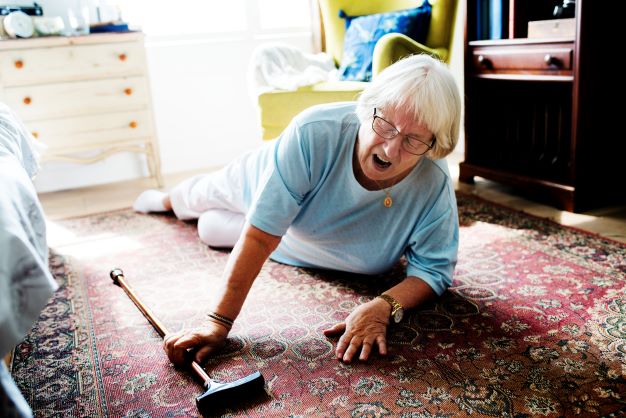
Are you a Caregiver in the home who is afraid to leave their loved one with Alzheimer’s home with someone else ?
The Caregivers Notebook helps YOU provide clear directions and a place to document the care helpers/family coming in provide.
It allows you to leave the home and indulge in self care so you can prevent caregiver burnout and be a better caregiver!
The first thing you should do is a home safety check.
Look at your house through the eyes of an outsider. Use the home safety checklist to check every room in your house.
Is there furniture that moves when leaned on?
Are all walkways clear?
Is there adequate lighting?
Are all rugs removed?
Is there anything on the floor they could trip over?
Do you have pets running around?
All of these things contribute to an increased risk of falls.
Once you have eliminated all the household fall risk contributors, you need to look at your family member. Do they have non-skid shoes? Tennis shoes are a good choice, or rubber-soled house slippers. Never let them wander around with just socks on. Socks will slide on wood or linoleum floors. Make sure that pant legs or nightgowns are short enough to allow them to walk without getting caught in their feet.
If your family member has reached the stage where they can no longer walk on their own, yet they still try to get up and walk, there are measures you can take to help keep them safe. Several different types of alarms will alert you when they try to get up without help.
Make sure items they may need are within arm’s reach. Sometimes sitting them at a table with things to keep them occupied will help instead of a chair in front of a television. For some people, a recliner in a laid-back position will keep them from trying to get up.
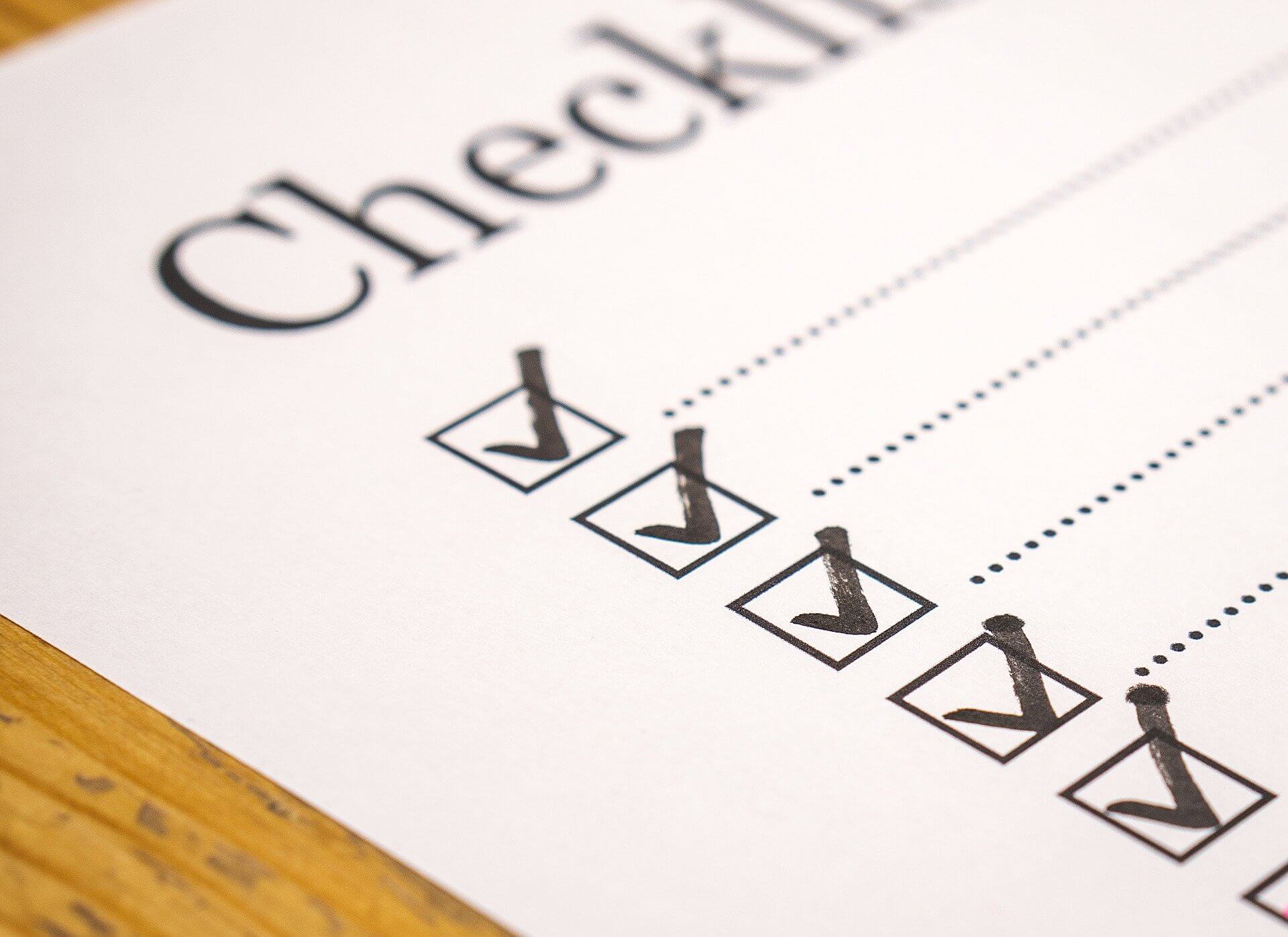
Many Alzheimer’s falls happen during the night. The path to the bathroom should be well-lit. Leave the bathroom door open with a light on. This way, they will be able to see where they are going. This also helps them see the toilet and know where they are trying to get to. Putting the bed against the wall can help. One less side to fall from.
Do your dining room chairs have arms on them? A chair with arms helps prevent sliding off the side of the chair and is easier for them to stand from.
With Alzheimer’s in the house, you always have to think about the “What if”?
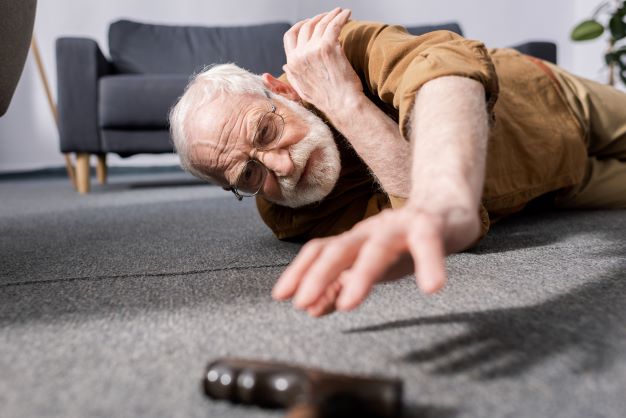
Alzheimer’s Fall Prevention Interventions
There are several different types of alarms to help prevent Alzheimer’s falls, on the market.
Alarms are designed to let you know your family member with Alzheimers is up and moving and is at a risk for falling.
There are pull string alarms that clip to their clothes and onto the furniture. When they stand up the alarm separates and will sound. These are useful for someone who may sit in several different places. They are easy to reposition.
During the day I prefer the chair pressure sensor mat alarm. It is a pad that goes on the chair and when they start to stand it alarms. As soon as their bottom lifts up it will alarm, some people will immediately sit back down. There is an alarm just like this one for the bed also. They are very sensitive. As soon as someone tries to get up out of bed it will alarm.
At night I prefer a motion sensor alarm. It works best when sat low in the room and aimed across the floor in front of the bed. If they swing their feet over the bed or start to walk in the room, the alarm will sound letting you know they are out of bed. This one works well for those with Alzheimers who are still able to walk around an you just want to know when they are out of bed.
Another type of alarm used at night is the pressure sensor alarm for the bed. It is just like the chair alarm only larger. It is very sensitive and can alarm when someone is just shifting their position in bed. This alarm is best used for someone who doesn’t get out of bed on their own anymore, but you are worried they may get to close to the bed and roll out.
Nightime Alzheimer’s Fall Prevention
Many falls happen during the night when they get up on their own!
Some people with Alzheimer’s Disease will have altered visual perception. For example, I have seen people who would not walk on black floors, thinking it was a hole. Stairs can be very tricky for them also. Make sure all stairways have rails on both sides if possible, and white or bright yellow tape on the stairs will help them know where the edge of the stair is.
Alzheimer’s fall prevention techniques are not difficult or expensive to implement. The most important thing is to understand they are at high risk for falls and your best intervention is prevention!
Investigate any falls your loved one may have.
Did they trip over something?
Were they too weak and lost their balance? Ask your doctor for a physical therapy consult if they can still follow directions.
Did they get lightheaded? Are they still on blood pressure medicine they may not need anymore? Monitor their blood pressure. Please keep track of it and share it with your doctor. The blood pressure medicine is often causing lightheadedness because the blood pressure is starting to go too low.
If they fall your goal is to prevent the same thing from happening again if possible.
The Dementia Caregiver Blog Library
Activities, Advanced Directives, Agitation, Apathy, Approach, Apps for Caregivers, Basic Caregiving, Bathing, Bathroom Safety, Caregiver Burnout, Caregiver Compassion, Caregiver Emotions, Caregiver Help, Caregiver Loneliness, Caregiver Support, Cold & Flu Season, Communication Challenges, Dehydration, Dementia Complications, Dementia Doctors, Dementia Safety Home, Dementia Types, Dementia-Friendly, Dressing Issues, Driving Safety, Eating Problems, Fall Prevention, Family Help, Finances, Guns & Dementia, Harm Prevention, Healthcare, Help at Home, Hiding Dementia, Holidays, Hospice, Hospital Stay, In-Between Stage, Kitchen Safety, Laughter, Legal Healthcare, Marijuana use, Medication Tips, Music, Nutrition, Pain, Patience, Poop Problems, Relationships, Reminiscing, Routine, Safety, Sense of Purpose, Shadowing, Sleep Issues, Stages of Dementia, Sundowning, Television, Time Travel, Traveling, Toileting, Wandering
Exploring Caregiving Tools & Resources? Don't Forget to Check Out My Resource Page! 🌟
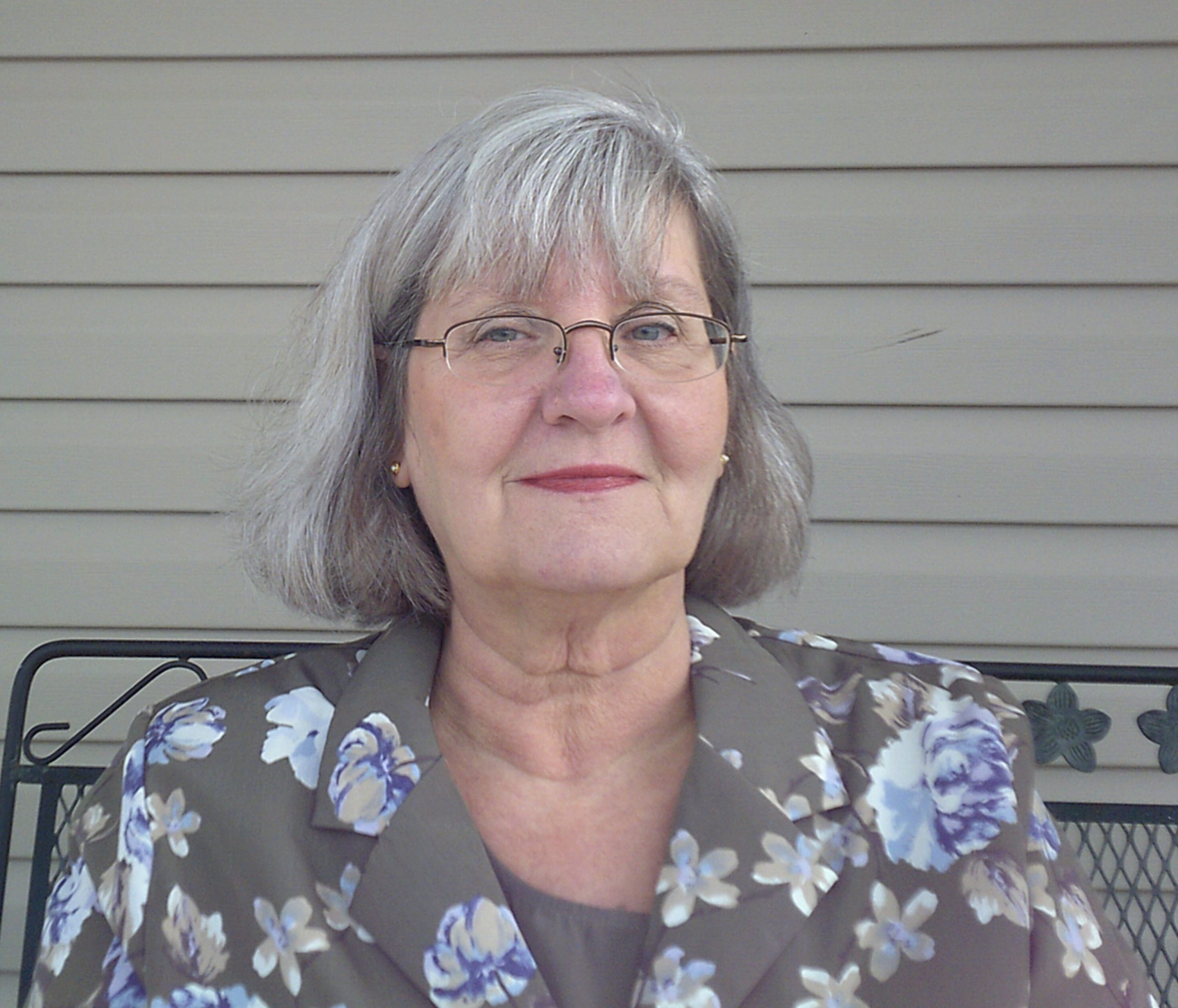
Hi, I’m Larea, a Certified Dementia Specialist and Registered Nurse with 30 years of hands-on experience helping dementia patients in various settings, from hospitals to nursing homes and hospice. Drawing on personal experiences with my family members and patients over the years, I’m here to help guide you on your caregiving journey.

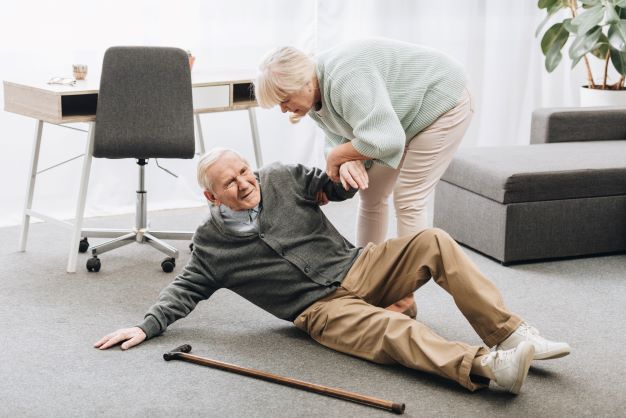
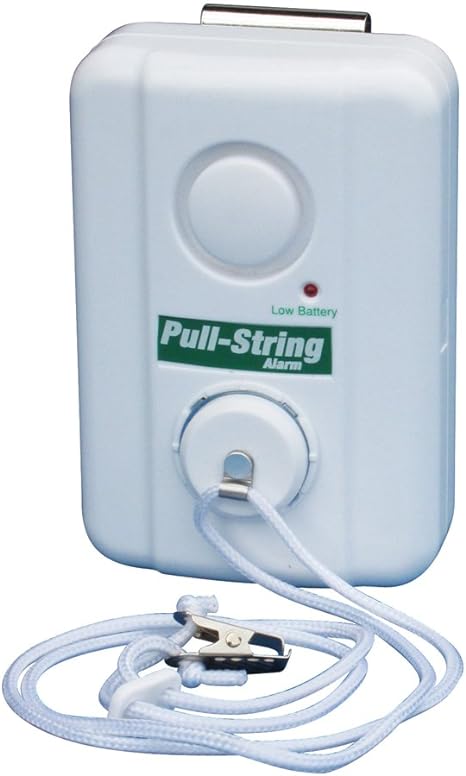


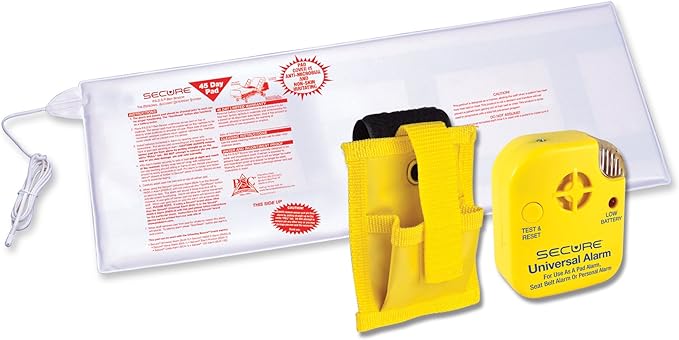
0 Comments